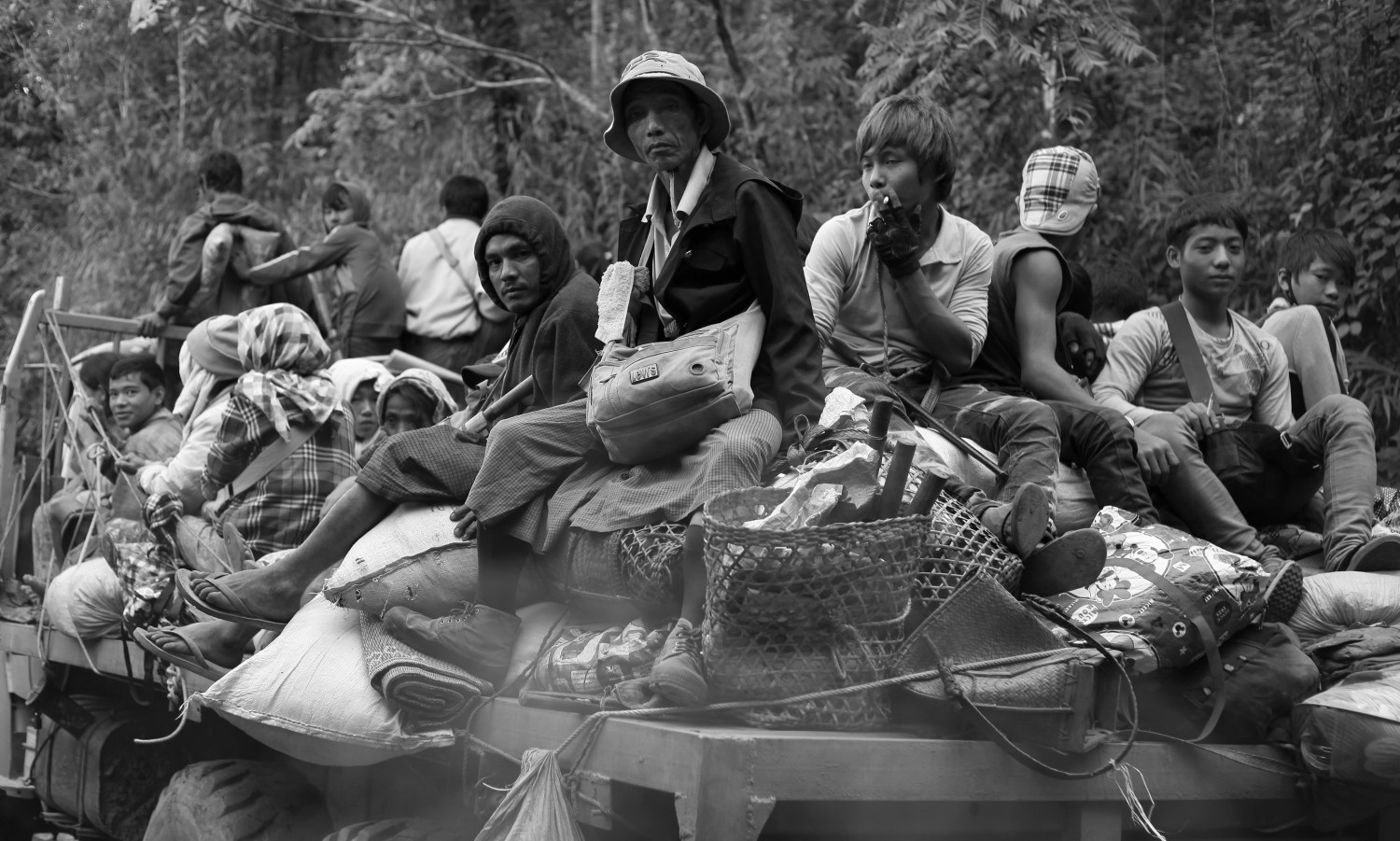|
Saroj Pathirana
BBC Sinahala service |
![]()
The bloody progress of the conflict in Sri Lanka has united many diaspora Tamils across the political spectrum.
The Sri Lankan military has made major gains in its attempt to defeat Tamil Tiger rebels (LTTE) fighting for a separate homeland.
|
Sen Kandiah, Leader, BTF
|
But Tamils around the world have protested in their thousands about the fate of civilians trapped amid the fighting and among those taking to the streets are Tamils profoundly critical of the Tigers.
Nesan Shankaraji of the Alliance for Peace and Reconciliation in Sri Lanka (APRSL) and a strident critic of the LTTE says moderate Tamils have been extremely disappointed by what they see as the Sri Lankan government’s attitude towards civilians caught in the conflict.
“We will be pushing for a United Nations resolution for an immediate ceasefire…” he says, underlining the critical role of the diaspora in pushing forward the Tamil cause.
Anger and hurt
British politicians including Foreign Secretary David Miliband and his deputy Lord Mark Malloch-Brown heard the concerns of the community during a tense meeting at the Houses of Parliament last month.
“Foreign Secretary, I will be failing in my duty if I do not convey the anger and hurt feelings of British Tamils,” Suren Surendiran, spokesman of campaigning group the British Tamils Forum (BTF), said opening the discussion.
“The Sri Lankan government might defeat the LTTE but it will never defeat the 1.5m Tamil diaspora worldwide,” BTF leader Sen Kandiah told the packed committee room.
Angry Tamils accused the British government of not doing enough to stop the bloodshed in Sri Lanka.
Many point to video footage of civilians injured in shelling allegedly by the Sri Lankan security forces.
The LTTE is accused by the government and human rights groups of using civilians as a “human shield”. The Tigers deny the accusation.
Saba Navalan, a political activist in London, accuses both the government and the LTTE of trapping civilians.
“Two fascist ideologies, the Sri Lankan government and the Tamil Tigers, have been waging a war for decades. Both parties do not care about the plight of the civilians.
“So the Tamil diaspora will have to carry on with their struggle against both ideologies,” he says.
Global protests
More than 50,000 Sri Lankan Tamils marched in London a fortnight ago urging the British authorities to exert pressure on Sri Lanka to call a ceasefire.
Tens of thousands of Tamils staged a similar protest in Toronto and protests are set to continue.
|
Poornima Karunakadacharan, charity worker
|
Many of those demonstrating were young Tamils, a large number of whom may well have been born outside Sri Lanka.
Subanki Kala, a political science student at the University of Toronto, left Sri Lanka at the age of three and has never returned because of the civil war.
“I am proud to be identified as a Tamil Canadian but I don’t think Tamils in Sri Lanka are proud to be Tamil Sri Lankans,” Ms Kala said.
For seasoned campaigners the involvement of youth such as Subanki Kala is critical. Some Tamil nationalist news websites publish in English specifically to reach Tamil youth brought up outside Sri Lanka and who don’t speak Tamil.
But as the LTTE finds itself on the back foot militarily, there is potentially a crisis brewing for Tamil nationalist hopes for a separate homeland.
Dr Camilla Orjuela, a researcher at the University of Gothenburg’s School of Global Studies in Sweden, says that the defeat of the LTTE “will lead to a major crisis for all those Tamils in the diaspora who gave their support to and believed in the struggle”.
She has extensively researched the opinions and behavioural patterns of the Sri Lankan diaspora.
“Tamil nationalist feelings will not be gone even if the LTTE leadership is gone. The question is if and how it will be politically mobilised,” she says.
Concrete action
“Isolate Sri Lanka” in the world stage is one such strategy Tamils are working on, says David Poopalapillai, spokesperson for the Canadian Tamil Congress (CTC).
“We are calling for the international community to impose an economic embargo on Sri Lanka and we will also boycott Sri Lankan products and urge foreigners not to travel there,” he said.

Some displaced civilians have been housed in camps in the north
|
Dr Orjuela points out that the cost, in terms of human lives as well as other aspects, of the 25 years of struggle has been immense and the disapora will be very reluctant to support another wave of violence.
“But the future of Tamil nationalism will depend very much on the Sri Lankan government and whether it will be able to sustain a peace which is not built on Sinhala domination, but which respects the rights of the minorities.”
Marking 61 years of independence from colonial rule, President Mahinda Rajapaksa recently invited the diaspora to return home.
Poornima Karunakadacharan, a charity worker in London, meanwhile, says that support for the Tamils’ struggle will die down with time.
“I don’t know whether they will carry on protesting for ever. The new generations already have a comfortable life abroad so won’t bother any longer.”
Suren Surendiran of the BTF disagrees.
“The LTTE insurgency will go on and we will support the struggle through political means until Tamils in Sri Lanka get a genuine political solution.”
